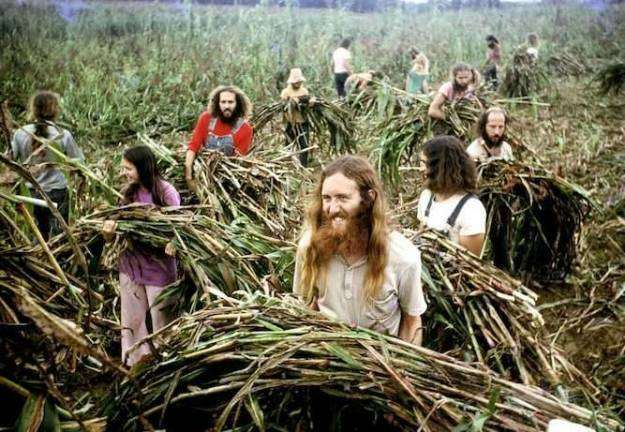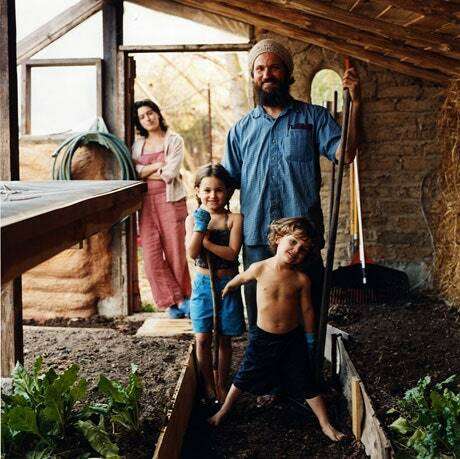Estimated reading time: 7 minutes
Between all the greenwashing and beach clean-ups that come along every Earth Day, does the annual celebration even mean anything anymore? Has Earth Day lost its way?
The counterculture movement that started in the 1960s has lent itself well to modernity. It’s not just the environmental advocacy Earth Day has become synonymous with that has stood the test of time. One need only look in any direction to see the impact of our bell-bottomed parents and grandparents — be it the commercialization of spiritual practices like yoga and meditation made popular by the long-haired disciples of yesteryear’s gurus, or things we now barely bat an eye at, like unleaded gasoline, clean air regulations, and restrictions on harmful chemicals, let alone all the kombucha, veggie burgers, and Birkenstocks.
And like those Merry Pranksters of the 1960s proffered, psychedelics are now too showing legitimate promise in treating some of the biggest health crises of our time. There are ‘60s and ’70s-inspired changes to fashion, beauty, transportation, design, technology, and finance. And as companies wear their green efforts on their sleeves, be it eschewing plastic, planting trees with every purchase, or supporting numerous other causes, in some ways, every day is, finally, Earth Day. But in other ways, we’ve never been further removed from the true spirit of the celebration.
A changing world
The good news is innovations are happening in ways unimaginable at the first Earth Day celebration. Traceability — whether a new handbag or diamond ring — can help erase the mysteries of the global supply chains and give consumers more power in making responsible decisions. Innovative companies are solving problems in packaging, materials, meat, transport — you name it and there’s someone, if not teams of brilliant people, working on it.

For all of the good news, though, the harsh realities of ongoing devastation and destruction persist. New data show half of the countries that made climate commitments in 2009 have failed to meet their targets. The Amazon rainforest is seeing some of its worst razing in decades. This is linked predominantly to the growing demand for meat and cotton; Brazil is now home to the world’s second-largest cattle herd and will soon surpass the U.S. as a cotton exporter. The Lorax-like destruction is happening in other important forests, too — all for a pound of Central American coffee or an ounce of Indonesian palm oil.
The cerulean blue oceans so visible from outer space are now thick with plastic debris and human trafficking, while trillions of fish and marine life are being pulled from the oceans every year. This, while we’re simultaneously dumping unthinkable amounts of plastic and poison into the waters — it’s literally washing into the oceans right off of our clothes, detergents, and body care products. By 2050, experts say plastic could outnumber fish in the oceans. This is a problem that will impact the oxygen levels on the planet, freshwater supplies, and the oceans’ ability to sequester carbon. Just like a thin layer of plastic wrap is enough to seal up leftovers, it is also suffocating our planet’s most critical carbon sinks.
The oceans are also facing big changes from melting ice shelves; a recent report found a significant crisis ahead as the planet warms. Another report found that 60 of the world’s largest banks have increased their investments in fossil fuels since the Paris Agreement. And the most recent IPCC report says we will most certainly see temperatures move beyond 1.5°C Paris Agreement targets, bringing devastation to billions of people.

Then, there’s the matter of greenwashing — the false promises propped up by bottom-line-driven industries all vying for your sacred dollar. It’s such a problem that the E.U. has passed legislation aimed to protect against such platitudes. That’s not to say capitalism can’t be an agent for good — we shop far more often than we vote, after all. But are we really convincing anyone that we can shop our way out of the climate crisis? The day meant for caring for the earth — gardening, cleaning up trash, planting trees, or inspiring young people is now overshadowed by President’s Day-style sales and discounts. Eco or not, is shopping the true spirit of Earth Day?
One company, which sells tofu in plastic — one of the biggest problems for the planet — is using Earth Day as a promotional tool without addressing the inherent problem with its packaging. It proudly announces “new images”, a move not unlike the bucolic farm imagery that typically accompanies factory-farmed meat, eggs, and dairy. In the case of the tofu, the company shies away from the realities of oil extraction or beached whales whose stomachs are filled with pounds of plastic. “The new packaging redesign showcases illustrations of people and pets enjoying the outdoors, emphasising the brand’s organic tofu products such as Super Firm and Extra Firm as sustainable protein sources,” reads the company statement. It’s a half-truth at best.
Which way to Earth Day?
The modern environmental movement took shape in 1970. But it had been brewing for years; Rachel Carson’s “Silent Spring” had spent the better part of a decade opening eyes to the reality of agrochemicals and their impact on the planet. In Vietnam, an herbicide was one of the most lethal weapons: Agent Orange, the dioxin-producing defoliant made of 2,4-D and 2,4,5-T, brought decades of disease and death to Vietnamese and Americans alike, reinforcing the need for chemical regulations and corporate responsibility. There were rivers on fire from chemical contaminants. There were “forever chemicals” being poured into cookware and takeout containers. Earth Day came to fruition as a change agent, and, yet, year after year, it seems, we need the reminder even more.

Remember lockdown? And those quiet, early months where nature rebounded almost overnight? There were animal sightings in the most unlikely places — as if they’d all just been sitting on the edges of civilization, waiting patiently for us to take our leave. The earth is indeed waiting for us to quiet our noisy looting so that it may recover what we’ve left it. Those dandelions pushing up through the cement, the gophers pushing up through the grass — do they get an Earth Day? By all accounts, they’re the ones really taking the celebration’s creed to heart. For the rest of us, Earth Day has lost its way.
Just like the destructive human activities that inspired Earth Day in the first place, we’ve made this annual celebration all about us. Our relationship with the planet requires a fundamental shift in perception. It is not a once-a-year party for the planet. It is not a day for “deals and steals.” And it is not just about shifting our habits of excess to a more sustainable option.
Buying an EV, eating less meat, or ditching plastic isn’t going to fix the planet’s problems overnight. We can’t elevate corporations to savior status, or wait for politicians to do the work for us. It’s up to each one of us to remember what this swirling blue ball we call home really is, and where we all are on it. For some of us, that means privilege. But increasingly, for many, it means navigating the burdens brought about by warming temperatures, rising sea levels, and shorter crop seasons. So, take time to think about that — make time for that — on Earth Day or any day. Before they run out.
Related on Ethos:


